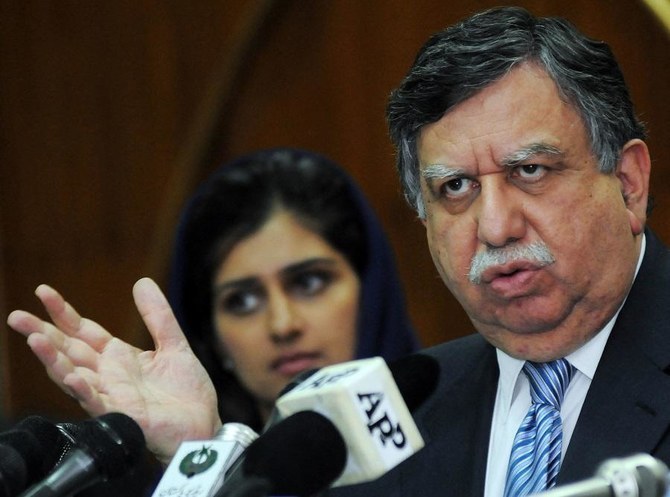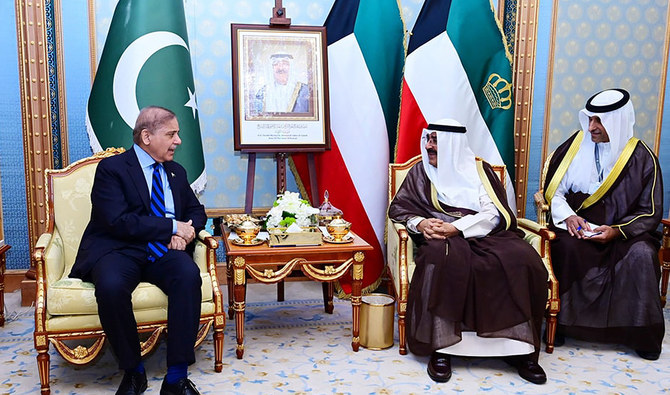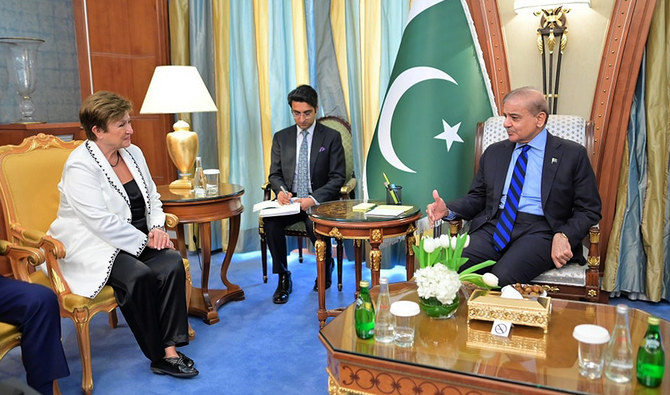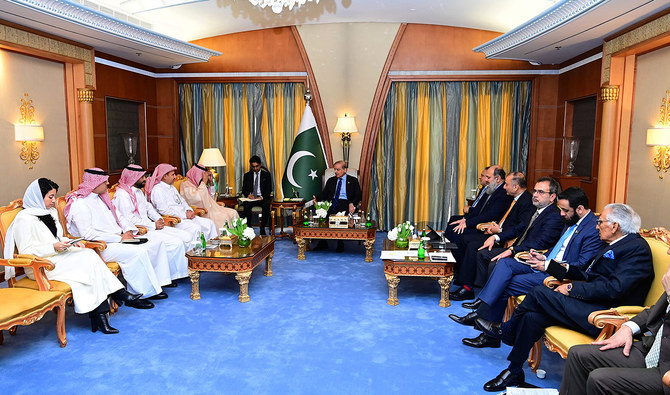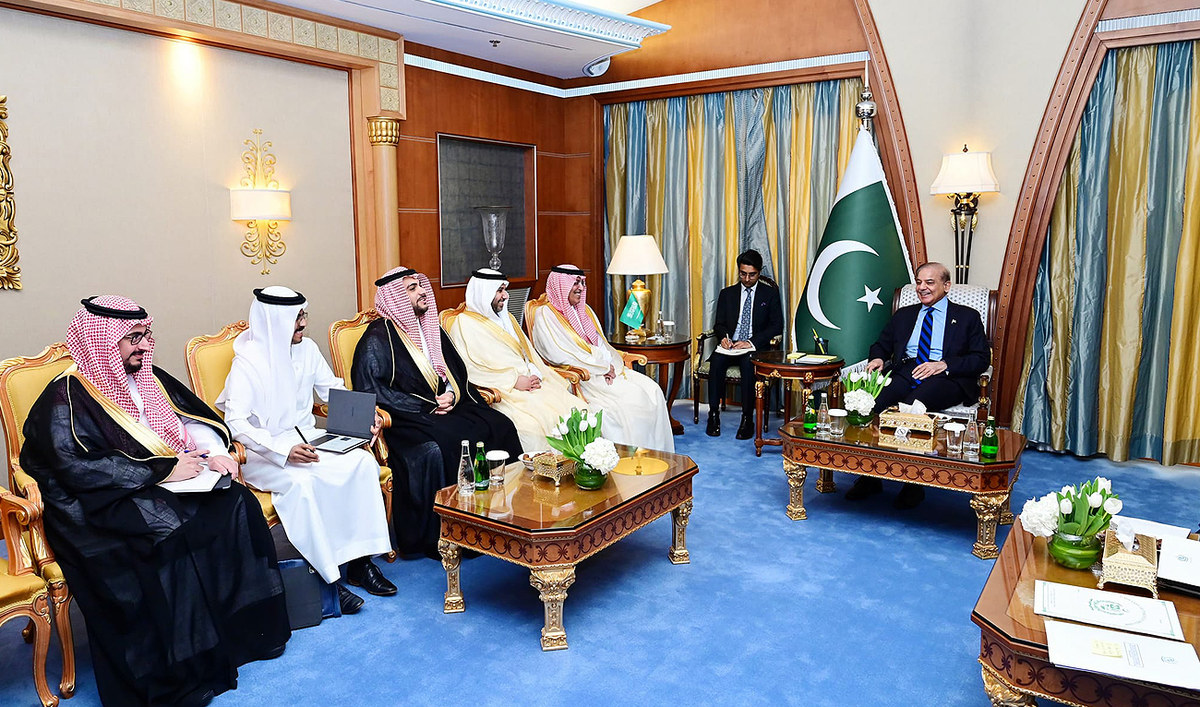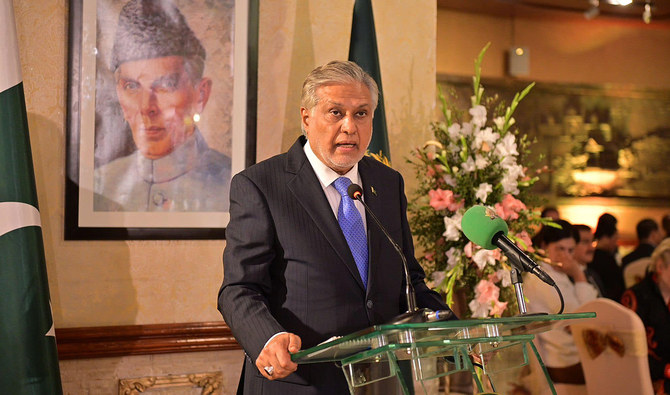KARACHI: An autonomous Pakistani central bank would not be against the country’s sovereignty and it would still be accountable to parliament, a spokesman for the Pakistani finance ministry said on Friday, dispelling the notion that it was being mortgaged to the International Monetary Fund (IMF) as “baseless.”
In late December 2021, the Pakistani government tabled the State Bank of Pakistan (Amendment) Bill, 2021 in the National Assembly to meet one of the five conditions set by the IMF, which required giving complete autonomy to the central bank. The introduction of the bill was linked with the revival of $6 billion IMF loan program Pakistan secured in 2019, which has been stalled since March 2021.
The amendments, if passed, would grant the SBP complete autonomy to manage its affairs, stop the government’s interference and restrict it from borrowing from the central bank.
Finance ministry spokesman Muzamil Aslam dispelled the impression that the sovereignty of the country was being compromised or the central bank was being “mortgaged” to the IMF, as claimed by members of the opposition.
“Such assertions have no essence and they are only political statements. The fears are baseless,” he told Arab News.
“The State Bank will not be completely cut off from the government because the [SBP] governor and the finance minister will have close liaison for the flow of information.”
Aslam said the SBP governor and deputy governor would also be appointed in consultation with the ministry of finance, president and the federal government.
Syed Saleem Raza, a former SBP governor, told Arab News the government’s move was “in line with international practices,” as almost all other countries had separated their central banks from finance ministries.
He said the government could not borrow from the SBP and determining the interest rates was the job of the central bank. “Though the central bank is already doing this task, this has now been reinforced in black and white.”
The amendment bill identifies domestic price stability as the primary objective of the SBP, followed by financial stability, according to the draft. Supporting the government’s economic policies to foster development and fuller utilization of resources has become a tertiary objective of the bank.
In Pakistan, successive governments in recent years made huge expenditures to lure voters in elections, which led to an increase in the budget deficit and inflation.
“Now such expenditures will not be made because the power to check money supply has been given to the central bank,” Raza said.
The terms of the SBP governor and deputy governor would also be extended from three years to five years — extendable by another five years, according to the bill.
Experts, however, said the bill should have been presented as an internal requirement, instead of being a requisite for the revival of the IMF program.
“For any country having sovereignty over its economic and legislative decisions, this should have been based on internal requirement rather than a forced change imposed by the global lender,” senior economist Dr. Ikramul Haq said.
“Prima facie, it seems that if the bill is adopted, financial interests of the IMF will prevail over economic interests of Pakistan,” he told Arab News.
“Such autonomy, independence without accountability, will be a new and further deepen the ongoing economic crisis, which can ultimately lead to security and sovereignty challenges.”
Dr. Ashfaque Hassan Khan, another senior economist who previously opposed the amendments, said the new bill addressed the issue of blanket immunity to bank officials.
“The bill presented in March 2021 had given immunity to SBP officials and no one was supposed to question them but this has been eliminated,” he said.
“There should be no ban on government borrowings,” Khan said. “Some sort of borrowing should be allowed, otherwise the government would borrow from commercial banks and there would be less credit available for the private sector, and banks would manipulate the interest rates.”
The bill provides immunity to bank officials against any legal action over any act of commission or omission, unless the act is committed with mala fide intent.
But experts said despite immunity, the SBP governor and officials would be accountable and parliament could summon them.
“They, like any other public sector company, can be held accountable by parliament through the finance ministry,” Raza said. “Parliament can summon the governor... They are not immune to accountability.”
After presenting the amendment bill in parliament, Pakistani finance minister Shaukat Tarin had said the central bank’s autonomy could be ended through simple majority in parliament, if it appeared to be slipping out of hands.
The amendments in the bill have six key purposes, including to clearly define the objectives of the SBP to improve its accountability, outline the SBP’s functions in line with these objectives, to provide the SBP necessary financial resources to help achieve its objectives, to strengthen functional and administrative autonomy of the central bank, to increase transparency in SBP operations and strengthen its governance, and to enhance the SBP’s accountability by strengthening oversight functions and increasing reporting requirements, according to a statement of objectives and reasons for the bill.



